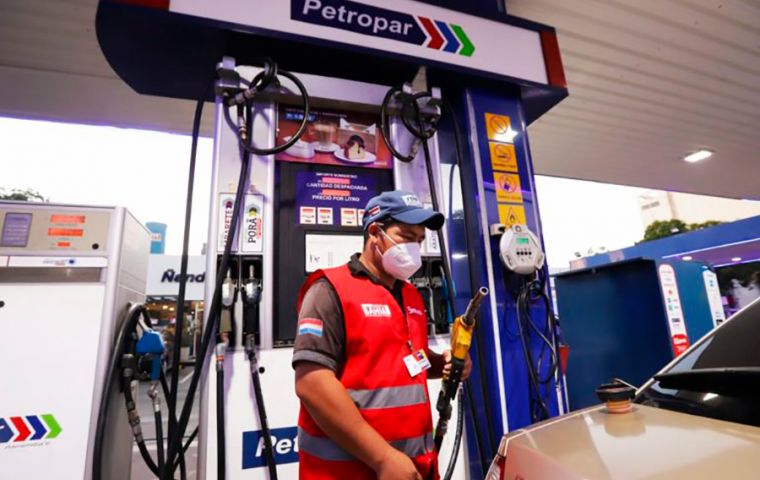MercoPress. South Atlantic News Agency
Petropar lowers price of fuel at pumps effective March 21
 Haas explained no new tax was to be created
Haas explained no new tax was to be created The price of fuel at pumps in Paraguay will be reduced as of Monday, the state-run company Petropar has announced.
Diesel fuel type III will go down G. 500 (US$ 0.072) per liter to G. 6,050 (US$ 0.87), while 93-octane naphtha will be reduced by G. 300 (0.043) to sell for G. 6,910 (US$ 0.99).
An increase of over 20% earlier this year had prompted a series of strikes from truck drivers, who blocked most roads until a lasting solution is found.
In that scenario, Paraguayan authorities have envisioned a stabilization fund for fuel, but after borrowing was ruled out, new financing sources are being sought.
Another way to cut down the price of fuel would be to eliminate current fuel quotas for all government officials and agencies and increase the Selective Consumption Tax (ISC) on tobacco and fuel (except Petropar's) for only two months.
One peculiar provision under consideration is that Petropar stations in bordering cities would be allowed to sell only up to five liters of common diesel and 93-naphtha to vehicles with foreign license plates as soon as the bill turns into law.
The details of the proposed draft were released Sunday. Deputy Economy Minister Iván Haas explained that no new tax was to be created, but raising the collection percentage on those already existing will be open to studying.
Meanwhile, peasants and indigenous communities were beginning to convene in Asunción Sunday for a massive demonstration Monday and Tuesday. Members of the National Organization of Paraguayan Farmers and the National Association of Progressive Women, both of the National Intersectoral Coordinator (CNI) together with the National Peasant Federation (FNC), will complain about the rise in fuel prices and the lack of assistance from the authorities.
The groups will also protest against the increase in food prices and demand further assistance and public policies for peasant and indigenous groups, who since 2020 have been pressing for the application of Law 6669/2020, which provides for the reactivation of family farming.




Top Comments
Disclaimer & comment rulesCommenting for this story is now closed.
If you have a Facebook account, become a fan and comment on our Facebook Page!